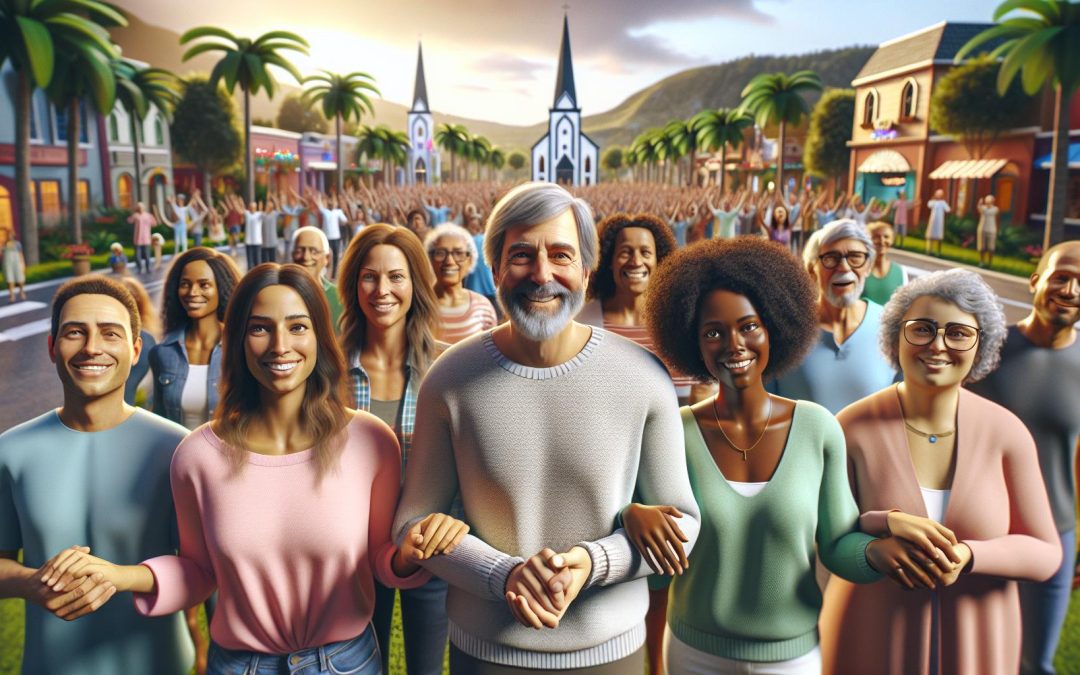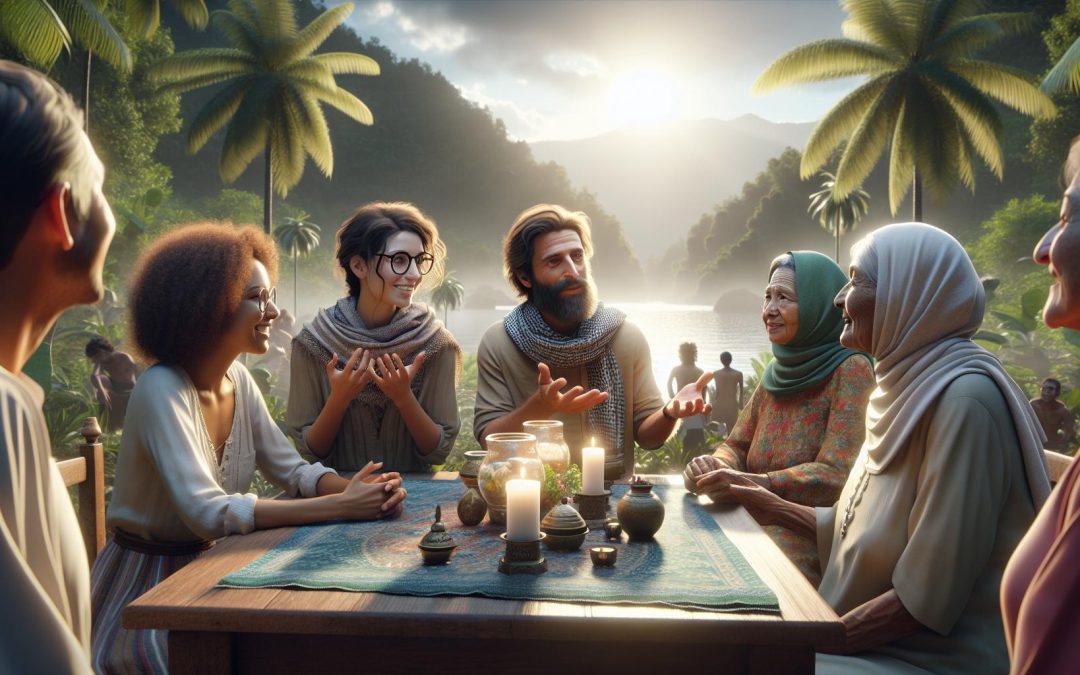When I first set foot on Mercer Island, I was struck by its serene beauty and vibrant community life. Nestled in the heart of Washington State, this island is more than just a picturesque locale; it’s a melting pot of diverse cultures and beliefs. Religion, in particular, plays a pivotal role in shaping the social and cultural tapestry of this unique community.
As I explored the island, it became clear that religious institutions aren’t just places of worship here—they’re vital community hubs. They host events, support local charities, and provide a sense of belonging to many residents. Whether it’s a festive celebration or a quiet moment of reflection, the influence of religion is woven into the island’s daily rhythm, impacting everything from education to community service. This rich interplay between faith and daily life is what makes Mercer Island a fascinating place to explore.
The Historical Role of Religion on Mercer Island
Religion’s influence on Mercer Island’s development is profound, dating back to its earliest days. The island’s settlers established places of worship, which became cornerstones for community building. Churches and synagogues offered more than spiritual guidance; they provided social interaction and collective identity. Early congregational activities included communal meals, fundraisers, and outreach programs.
Throughout the 20th century, religious organizations on Mercer Island adapted to changing demographics, fostering inclusivity. Diverse faith groups emerged, reflecting the island’s evolving population. Religious centers became platforms for mutual understanding, hosting interfaith dialogues and collaborative events.
In the 1960s, Mercer Island witnessed a surge in civic engagement inspired by religious teachings. Faith-based groups advocated for social justice, contributing to civil rights initiatives. This era underscored the moral imperative many residents felt to address societal inequities, driven by their religious convictions.
By the 1980s, religious institutions expanded their roles, impacting education and cultural preservation. Sunday schools and Hebrew classes played vital roles in cultural retention. These institutions became custodians of tradition, ensuring the transmission of religious heritage to new generations.
Today, historical records and oral histories reveal the persistent legacy of these religious contributions. Mercer Island’s archives include documentation of church-led community projects that supported infrastructure development. These efforts cemented religion’s role in shaping the island’s unique social fabric.
Mercer Island’s religious history exemplifies the power of faith to unite, inspire, and evolve alongside a growing community.
Religious Diversity on Mercer Island
Mercer Island’s tapestry of faiths enriches its social and cultural life. Long-established religious communities coexist with new faith groups, creating a dynamic and inclusive environment.
Major Religious Communities
Christian denominations like Lutheran, Presbyterian, and Catholic have deep roots on Mercer Island. These churches form social bonds through events and outreach programs. The Lutheran Church, established in the early 20th century, remains a focal point for community gatherings. The Presbyterian congregation highlights intergenerational connections via youth and senior activities.
Jewish residents actively participate in island life through synagogues and cultural events. Temple B’nai Torah organizes educational programs for both children and adults, fostering religious education and community ties. This blend of Christian and Jewish presence contributes significantly to the island’s cultural vibrancy.
Emerging Faith Groups
Diverse spiritual groups find a welcoming home on Mercer Island as evolving demographics foster interfaith dialogue. Buddhist centers offer meditation classes and teachings, appealing to those exploring spirituality beyond traditional frameworks. These events inspire mindfulness and self-awareness among participants, enhancing overall well-being.
Islamic families have established prayer groups and gatherings, adding to the multi-faith landscape. During Ramadan, open community iftars provide residents opportunities to engage with Muslim cultural practices. The presence of these emerging groups encourages mutual respect and understanding, reinforcing Mercer Island’s inclusive ethos.
Religion and Social Structures
Religion plays a pivotal role in shaping Mercer Island’s social frameworks. It influences various community aspects through deep-rooted engagement and support systems.
Community Engagement
Religious institutions on Mercer Island actively foster community engagement. Churches, synagogues, and other religious centers host events like festivals and volunteer opportunities. These gatherings bring people together from diverse backgrounds. For example, annual fairs combine cultural exchange with religious teachings, enhancing understanding among residents. Youth groups within these institutions organize outreach activities to aid those in need locally. Holiday celebrations become occasions for sharing customs and building communal ties. Interfaith dialogues, often facilitated through religious entities, create platforms for meaningful interactions. These discussions promote tolerance and respect, forming the foundation of the island’s cohesive social fabric.
Social Services and Support
On Mercer Island, religious organizations provide crucial social services and support. They run food banks and shelters, offering assistance to vulnerable populations. Church-affiliated programs supply educational aid for students and job training for adults. Counseling services, often available through faith-based initiatives, address mental health and family issues. During crises, such as natural disasters or economic downturns, religious groups mobilize resources to help affected individuals and families. Donations and volunteer efforts coordinated by these entities ensure sustained aid delivery. This robust support network rooted in religious commitment strengthens community resilience against societal challenges.
Cultural Contributions of Religious Institutions
Religious institutions on Mercer Island enrich the cultural landscape by supporting arts, music, and celebrations, creating a shared cultural experience across different faiths.
Music and Arts
Churches, synagogues, and other faith centers on Mercer Island nurture creative expression through music and arts, enhancing cultural engagement. Many congregations host regular music events, including choir performances and orchestral concerts, creating opportunities for both performers and audiences. St. Monica’s Catholic Church, for example, is known for its vibrant choir, attracting members from the wider community. Art exhibitions frequently held in these venues offer platforms for local artists to showcase their work, integrating religious themes with contemporary art. By supporting arts education programs, religious institutions also provide classes in music, painting, and dance to all age groups. These programs encourage artistic talent development and preserve cultural traditions, making them essential to the island’s cultural life.
Celebrations and Festivals
Religious festivals and celebrations on Mercer Island foster community spirit and cultural understanding. Congregations invite the public to join in significant observances, such as Hanukkah at Temple B’nai Torah or Easter gatherings at Mercer Island Presbyterian Church. These events often include cultural activities like traditional music, dance, and shared meals, allowing attendees to experience new customs. Additionally, interfaith events such as the annual Gratitude Dinner encourage residents from various religious backgrounds to come together, promoting mutual appreciation and unity. By incorporating diverse cultural elements into celebrations, religious institutions bridge gaps between different faiths and backgrounds and contribute to the island’s collective cultural identity.
Interfaith Dialogues and Cooperation
On Mercer Island, interfaith dialogues have become a cornerstone of community life. These dialogues bring residents from different faiths together, fostering mutual understanding and respect. One of the highlights is the annual interfaith forum, which attracts participants from various religious backgrounds, including Christians, Jews, Muslims, and Buddhists. Through moderated discussions, attendees explore complex topics such as ethical living, environmental stewardship, and social justice, all informed by their diverse beliefs.
Cooperation extends beyond just dialogues. Many religious institutions collaborate on community service initiatives, pooling resources to address local needs. For example, I’ve seen churches and synagogues partner with Islamic centers to support food banks and organize clothing drives, reaching a broader demographic across the island. These joint efforts showcase the power of cohesive action in strengthening communal bonds.
Educational workshops also play a crucial role in interfaith efforts, providing platforms for people to learn about different religious traditions. Faith leaders often invite speakers from other denominations to share insights and practices with their congregations. In doing so, they nurture an inclusive environment where cultural and religious diversity is celebrated. I’ve found these endeavors promote a deeper appreciation for the island’s varied spiritual landscape.
Interfaith youth programs further embody this cooperative spirit. Young people engage in activities like interfaith camps and community service projects, developing leadership skills and friendships with peers from other faiths. These programs instill values of empathy and inclusiveness, preparing them for a future where cooperation transcends religious boundaries.
Through these dialogues and cooperative ventures, Mercer Island illustrates how interfaith interactions enrich community life. By embracing both differences and commonalities, the island’s residents forge a vibrant cultural tapestry, strengthened by the harmonious integration of diverse beliefs.
Challenges and Controversies
Religion on Mercer Island significantly impacts the community, yet it also brings challenges and controversies.
Balancing Tradition and Modernity
Religious institutions grapple with maintaining tradition while embracing modernity. Many churches and synagogues wish to preserve long-standing rituals and practices. Yet, there’s a clear desire among younger members for contemporary worship experiences. For example, some organizations incorporate modern music into traditional services, aiming to attract new generations and retain current members. Other faith groups explore innovative outreach methods like digital sermons and social media engagement. Though these shifts aim to increase participation and relevance, they often spark debates about preserving authenticity while adapting to cultural changes. This dialogue reflects a broader struggle within religious communities to honor their past while moving forward.
Addressing Social Tensions
Religious diversity, though celebrated, can sometimes result in social tensions. Some residents may feel their beliefs are marginalized in the broader community. For instance, conversations about religious holidays and the representation of different faiths in schools often stir intense debate. Some schools grapple with accommodating religious observances without neglecting secular perspectives. As Mercer Island becomes more diverse, interfaith activities strive to bridge differences and reduce misunderstandings. Still, achieving harmony requires addressing sensitive topics and fostering open dialogue, creating a community where every faith tradition finds its place without overshadowing others.
Conclusion
Exploring Mercer Island has shown me how deeply intertwined religion is with its social and cultural life. The island’s faith communities have created a vibrant tapestry that celebrates diversity while fostering unity. From historical roots to contemporary expressions, religion continues to shape the community’s identity, offering support and inspiration to its residents. The dynamic interplay of tradition and modernity, along with ongoing interfaith dialogues, highlights the island’s commitment to inclusivity and mutual respect. As Mercer Island evolves, its religious landscape remains a cornerstone of community engagement, ensuring that the island remains a welcoming and culturally rich place for everyone.




0 Comments